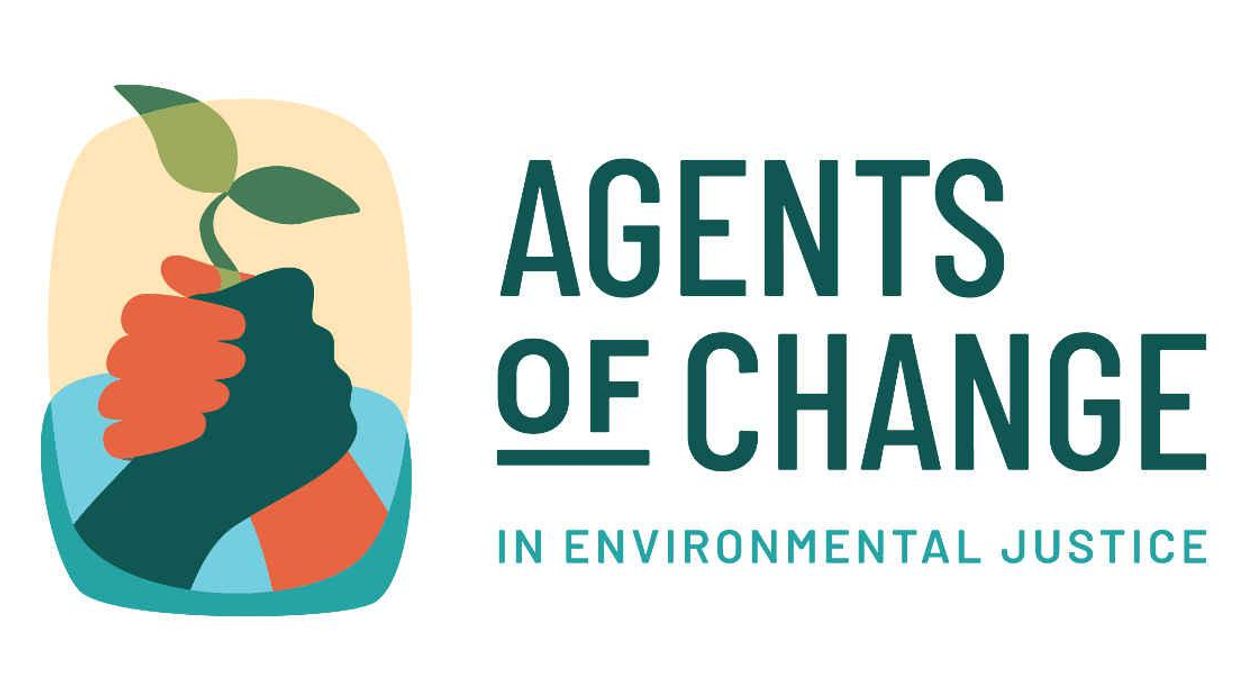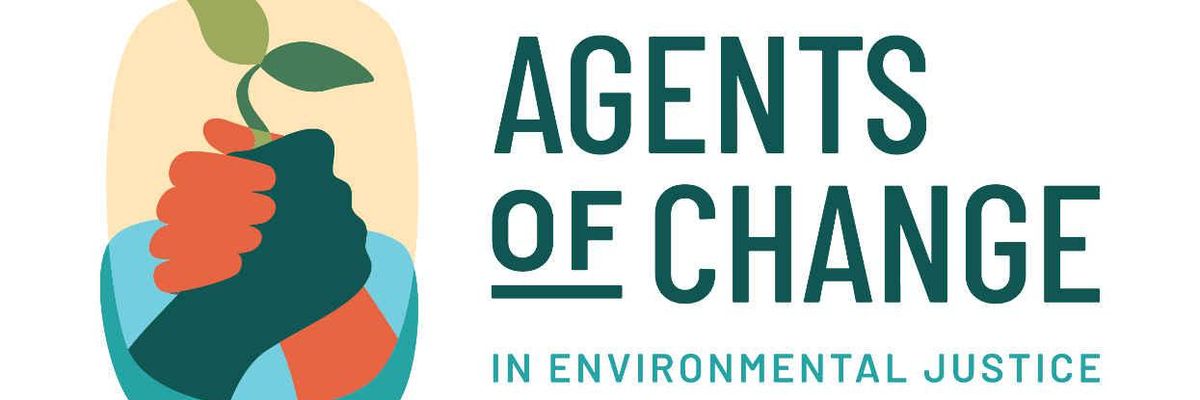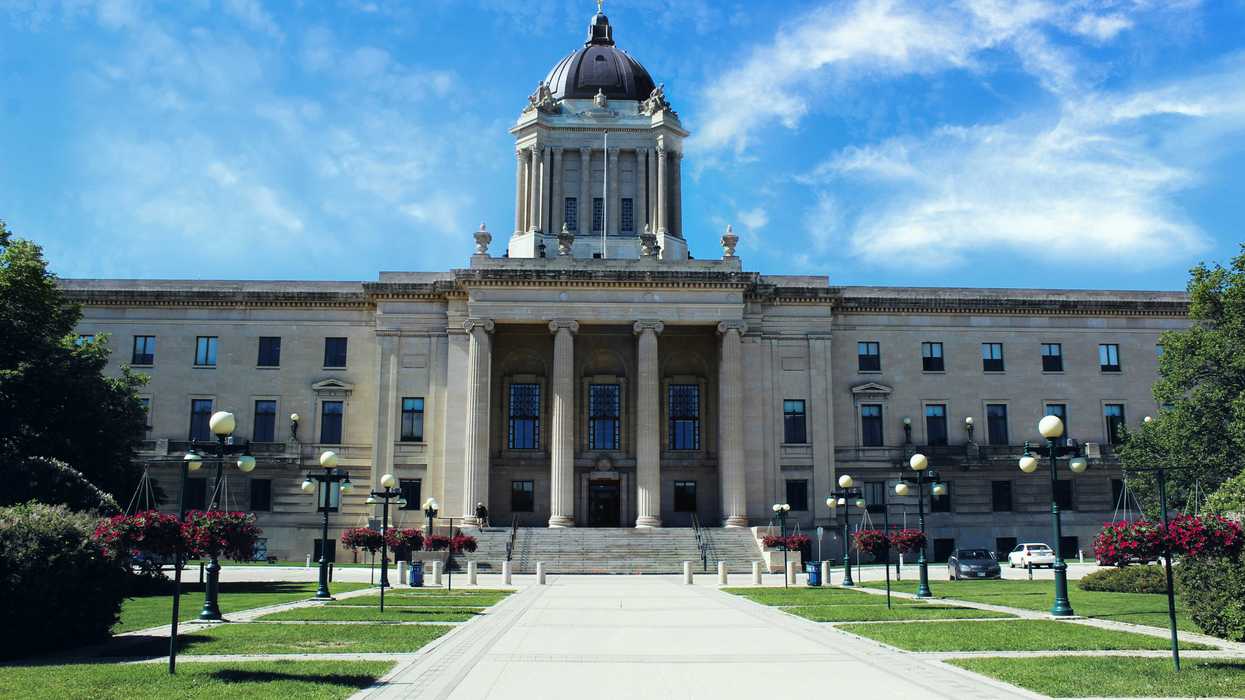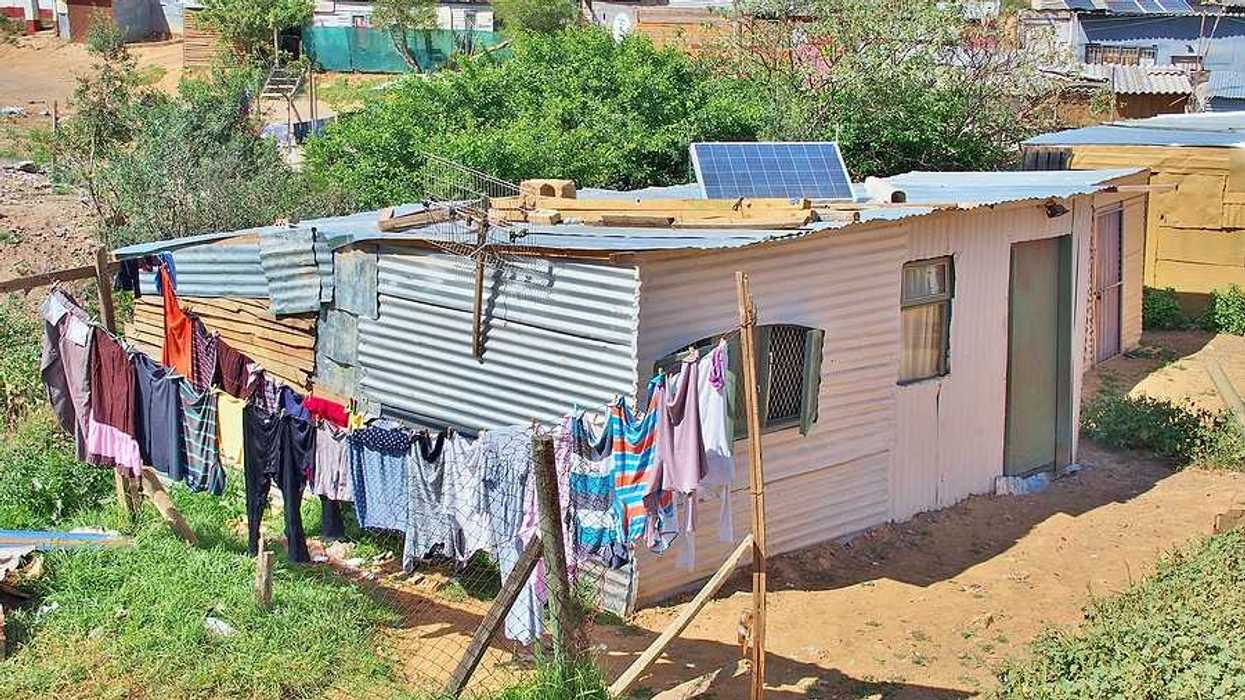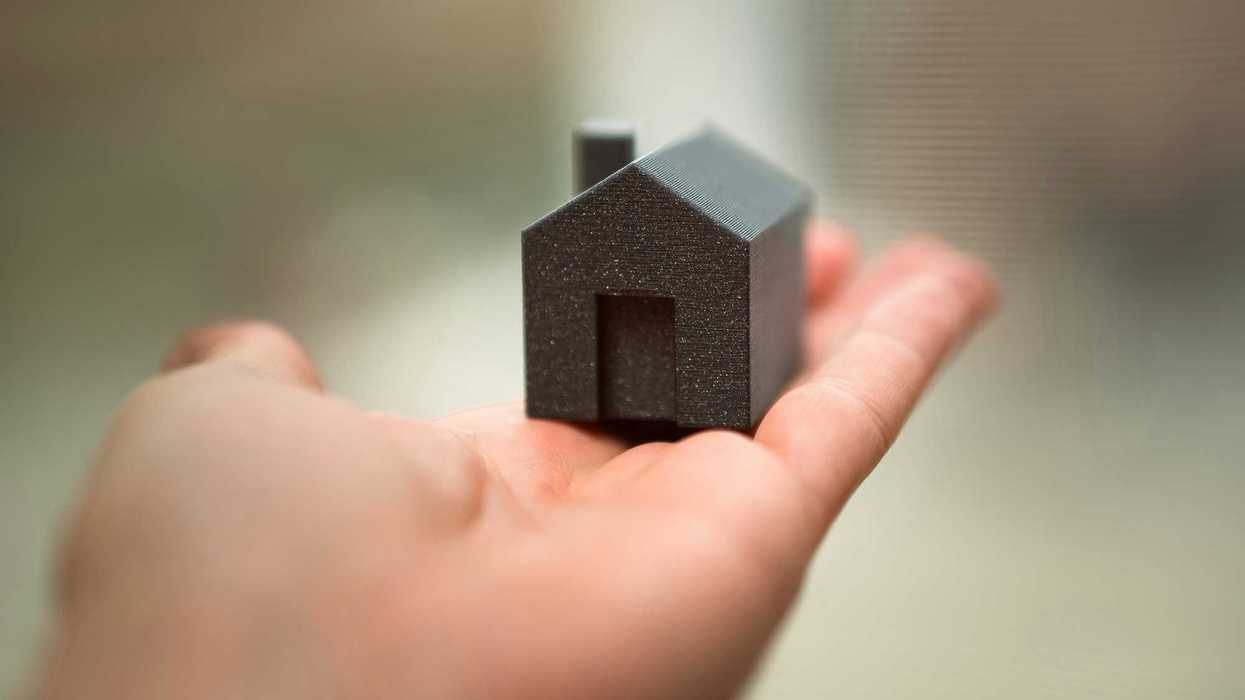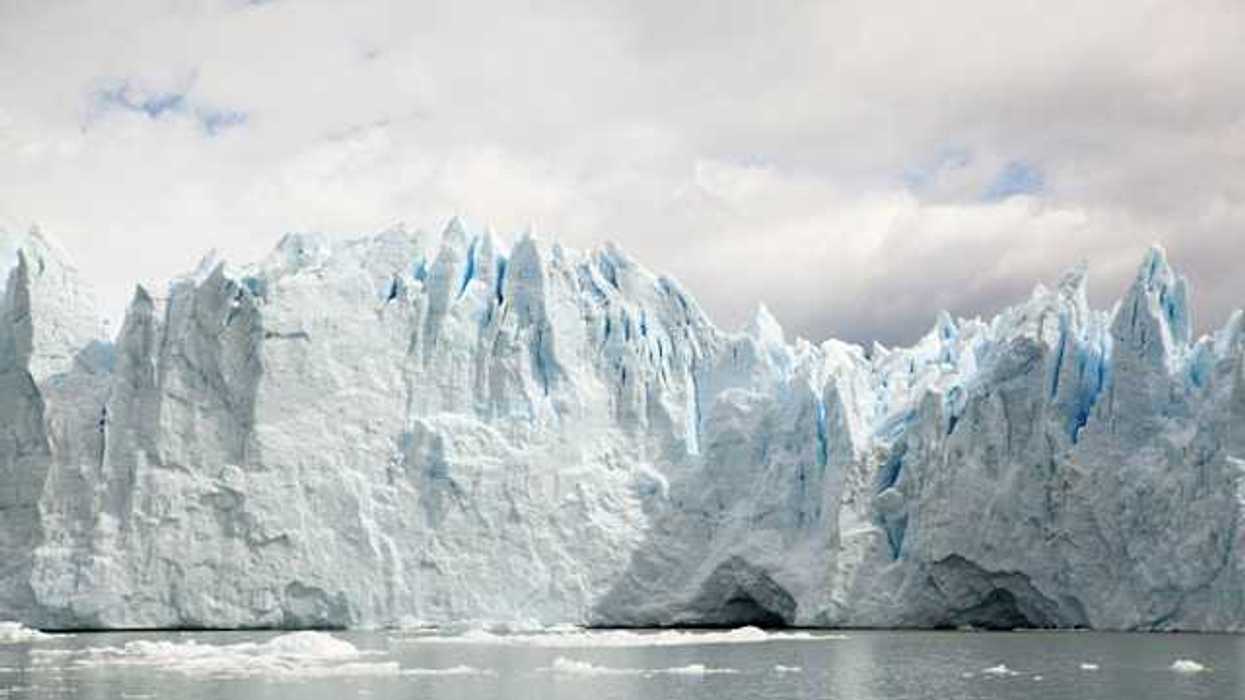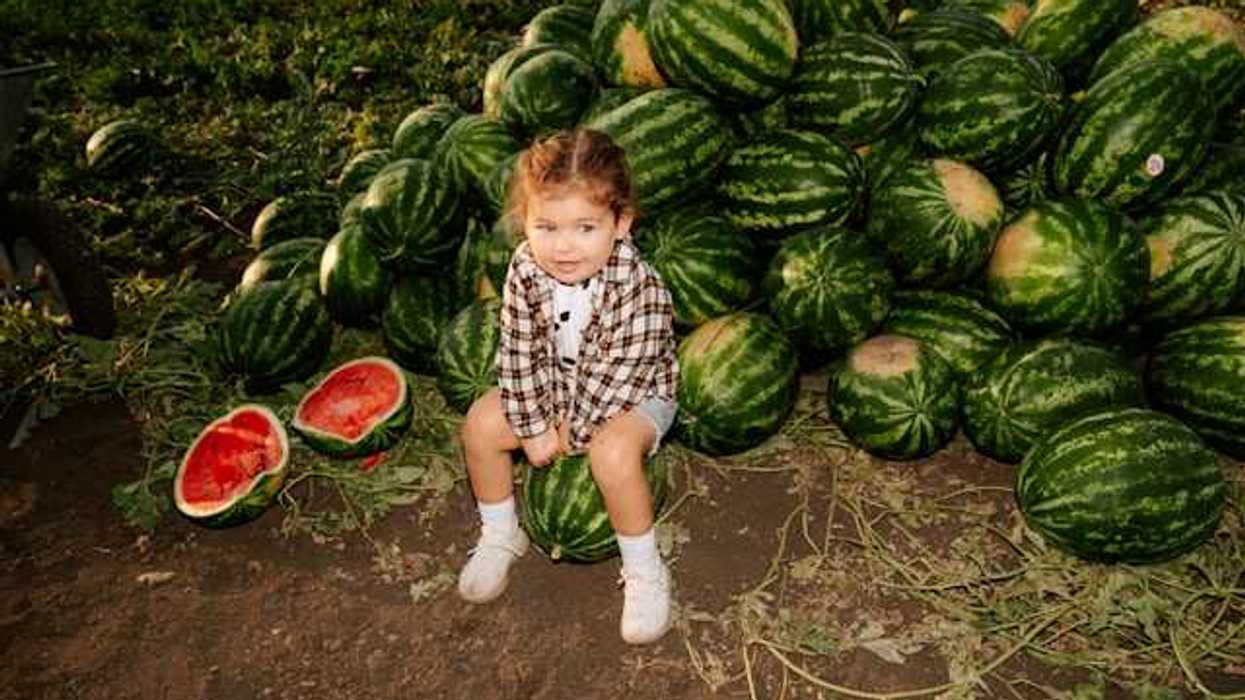Dr. Ami Zota joins the Agents of Change in Environmental Justice podcast to discuss the program and the increased need for fresh ideas that are grounded in science, community, diversity, and equity.
Brian Bienkowski
So now I'm joined by Dr Ami Zota. Ami How are you doing?
Ami Zota
Okay hanging in there. Yep. Good.
Brian Bienkowski
I thought it would be first to know a little bit about your day job, and how launching Agents of Change fits into it.
Ami Zota
Sure. I'm a research scientist and I consider myself an environmental health scientist. I'm an educator, a mentor and yeah so just a little bit maybe about my research, I am these days thinking a lot about how structural factors, whether it's policy or systems of oppression like racism or sexism, how those actually influence our everyday environmental exposures, whether that chemicals in beauty products in your food or inside your home. And then what are the consequences of those exposures, particularly for women and children's health. So that's a little bit about my research.
And one unifying theme that kind of goes across everything I do, whether it's teaching or mentoring, or doing science is not to do science simply for the sake of discovery, or to advance knowledge, but to do science that will directly contribute to improving health and improving social equality. And I think science communication is critical to connecting good science to policy change. So I started Agents of Change, because I wanted to make the process of science communication, more diverse and inclusive.
Brian Bienkowski
The last point's important when you talk about taking this to science, having science communication as part of the science kind of built in because traditionally, and I'm not a scientist of course, but traditionally I don't know if that's been at the forefront or definitely not incentivized so I'm wondering you know one of the main reasons is to have the researchers, give them a chance to speak about the research in a more informal way connecting to more people. And this this of course goes against that thinking that hey stick to the science for scientists. So I'm wondering if you could talk about why you think it's important for scientists to communicate to people outside of academia and research institutions and how maybe this landscape is shifting a little bit.
Ami Zota
Sure, I think, what has always driven a what's been a huge motivating factor for me is how to maximize the impact of my work and everything I do, and I am a firm believer that your responsibility as a scientist does not end when you publish a study, and actually, to me that's when the real work begins. And you have to actively find ways to disseminate your work to other people, even to the scientific community, if you really want people to build upon your work to use your data, then you have to be creative and intentional about the dissemination part of it. And since I've always done policy relevant work. I have always, especially been conscious about how can I most effectively disseminate my work to stakeholders outside of academia, whether that's policymakers, doctors, or even just concerned parents, and so that they can use this information to improve their lives and make more informed choices.
Okay, so how I mean so that is true that it isn't normally incentivized within the Academy. I find that some of that is slowly changing, and some of that change has been accelerated by our current health crisis and pandemic when we see how important good science communication is to trying to kind of get control of this situation.
Brian Bienkowski
So a little peek behind the curtain here so I've known Ami before this program of course as a, as a journalist, writing about her research for years. And so, I know the answer to this a little bit but I was wondering if you could kind of give the audience an example of a time when your science communication and your research has helped to create some kind of policy change.
Ami Zota
Sure yeah I you know I kind of got the science communication bug early on in my career I was just fresh, you know, done with freshly out of my Ph. D program at Harvard and I went to the Silent Spring Institute and started, kind of, it was a surprise, sort of unexpected finding we found really high levels of these brominated flame retardants in the bodies and homes of people in California. And we had a suspicion, it was because of their unique policies in California that ended up requiring greater use of flame retardants and the product and their products and. And so we. I was able to kind of get involved with trying to shape, health and safety standards for consumer products in California and, and then kind of, I moved on to do a second postdoc at UCSF. And there are my work showed actually how lower income communities and communities of color, within California were particularly highly exposed to these flame retardants almost to the levels of what you would normally find in workers. And so I became part of this coalition of scientists doctors activists who were trying to change flammability standards there and I mean it took about five years if not longer before change happened. But, um, you know, that was just exciting to be part of that process even if it was also discouraging when we weren't successful and kind of one part of that, you know, kind of one piece of the argument where my research really I think helped was, you know, some opponents of this legislation really tried to frame this as like this green environmental bill. But my work showing that low income, socially vulnerable populations had higher exposures and coupled with the fact that there was growing evidence that, especially when pregnant women were exposed. There were learning and development problems in their children. You know, we, we really tried to do a lot of science communication to show look here is actually something we can do to protect the health and development of this at risk population and. And so, you know, it may be environmental policy but it's also social policy and it's also health policy so kind of helping to reframe.
You know, this policy in a bigger context. So, and I think I you know I got hooked and and so since then it's it's been critical to kind of other work that I've done most recently, I've also been involved in kind of cosmetics legislation in California, and, and, on the national scale. And just for the audience flame retardants are added these are added to furnitures and building materials and these are harmful because they mess with our hormones and other kind of health related impacts. That's right. So we were really looking at the use of flame retardants are better added to furniture, because foam based furniture is particularly flammable. And at this point, what they are hormone mimicking chemicals and their exposures, especially when you know when pregnant women are exposed exposures can actually have actually can actually impact neuro development, and there are now a whole host of studies showing how higher exposures to flame retardants in the prenatal period is even associated with reduced IQ so these are serious impacts that can really affect you know an individual's whole life trajectory.
Brian Bienkowski
So it sounds like when you get to that point you're, these are the are testifying you're sharing your research. If we can take a step back and think more about the, the initial part of the communication. And this is a particular sticking point for me because I am not a big social media person but how do you feel about the use of social media by the academic community and do you find it useful and do you have tips for other scientists who maybe want to use it to push their workout and then eventually get to that point where you are pushing for change and in rooms with activists and others.
Ami Zota
Yeah, I think you and I, we've had some interesting conversations, the goods and the evils of of social media, I really do think, um, you know, it's kind of an agnostic tool, at the end of the day it's a tool it's an agnostic platform but it can be used for good and it can also be used, you know to promote toxic hate right and harassment and fake news. So, you know, I think we have to think about it it's a platform and it's a tool. And I think it is a really powerful tool for scientists, it democratizes the act of science communication and disseminating your research it, you know, because before the main avenue, the main venue for this are conferences and conferences it's expensive to go there you know it's a huge carbon footprint, and especially if you have young children and especially for women with young children, there are other barriers to traveling so I think this has opened up given scientists new ways to communicate their research. I mean obviously it's a challenge like Twitter is used a lot by scientists but. So here you are then having to copy you know communicate really complex ideas, you know, with 280 character limits right so it's not easy. Um, and so I think like any other skill that young scientists have to learn how to affect our view, we use social media it's not something that most people would just have an intuitive sense for like you have to kind of really I think actively learn how to maximize the use of this tool but I've had fun kind of doing that, I guess.
Brian Bienkowski
Yeah. In our first group of fellows for Agents of Change the one thing I did notice, so I do, I am involved in EHS Twitter account. And we would have a story about housing rights housing security, and it was almost like researchers were coming out of the woodwork and all of a sudden I knew about 15 other researchers, or the career scientists who are looking at similar things or maybe just interested in kind of the social aspects of housing rights. So I will say it did create this sense of community that there were a lot other a lot of other people, similar to our fellows the first time around looking at these issues and interested in them. And I found that pretty fascinating.
Ami Zota
I think relatedly, I think what we saw in our first round of fellows is that at the beginning. Well, not all of them were on social media and not many of them were actively using social media to talk about science. And I think what I saw was that they're over time, I think, and part of it was, was participating in this program they became more comfortable on social media and you know I am watching them kind of create you know finding other like minded scientists and getting more comfortable sharing their research or talking about other people's research and so I think, you know, a kind of I've been watching them kind of explore this, you know, and learn how to use these tools you know and and so I think you know it's kind of it's a process.
Brian Bienkowski
Right. And the the linchpin of that program the underpinning of it was, was kind of these first person essays where they wrote about. They were all, they all had a different flavor but for the most part it was this blend of both the research that they conduct and how that interacts and interplays with their lived experience and kind of their views on various social issues. And so a lot of people traditionally either look to investigative journalism something that I'm used to, or new science obviously something that you're used to, to help drive the societal change and this is kind of a hybrid of sorts. And I'm wondering how you see Agents of Change driving the kinds of change that, that you want to see both in science and kind of society more broadly.
Ami Zota
Sure, you know, the way I describe this program, when I talk to people. And I feel like we're building the car as we drive it. Right, so we kind of started it with this seed of an idea to create, you know, a cadre of new diverse and you know more inclusive thought leaders in in the spaces around environment climate health and justice and so that was kind of my big idea. You know, I didn't have it, the path on how we were going to do that well laid out and you know you you had some really good thoughts about really inserting the fellows themselves very directly into their, their narratives. So, not just making it about science translation, the translation of their work but really, inserting themselves in those into those narratives and I think that's why the essays, have gained so much traction.
And I guess what I what I see that we're doing kind of just taking you know being reflective on the last year is I think we're training. These early career scientists on how to be more effective storytellers. And I think that's so important because what we know is that data alone does not change the human behavior. Data alone, you know, doesn't it rarely changes, attitudes about a certain topic, it's, it's human stories that really create change. So there's something really powerful about, about, you know, kind of this first person narrative form that uniquely blends research expertise with lived experience. I think the other reason why it's so powerful is you know where we are focusing on students who come from underrepresented backgrounds because often their, their stories and the communities they represent. They are often invisible and they've often been neglected and. And I think that's another really powerful thing about what we're doing is, you know, through their writing, where we are learning about these, you know, often neglected topics and populations. And so it's it's both been, I think, illuminating to the everyday reader, but I know a lot of scientists in in the environmental health space who are actively following our blogs and and and really learning a lot through that.
Brian Bienkowski
What was that was it building the car while we're driving it was that that's maybe billing the car while we're we drove zero to 60 pretty fast, but yeah that's a good. That's a good analogy that I was thinking when you when you were talking about there at the end about, there was almost this perfect storm to have kind of COVID happening, racial unrest happening, and of course our program started before all of that but there was a lot of people all of a sudden listening to scientists and trying to figure out who were the scientists to talk to when it came to COVID. And I felt like our program, kind of came at this time.
At a perfect time to show people that scientists are not the Einstein looking guy in the lab with the beakers and the that scientists come from all kinds of walks of life and I felt like that was a really important part of the first round of fellows and, and of course at one point you were in a similar situation to a lot of these fellows that we work with an agency to change and I'm wondering how you know being a woman of color scientists shaped your academic career and your research path.
Ami Zota
I think that's a really important question, um, you know, so, my parents immigrated to this country, right before I was born from India. We grew up in small town, North Carolina. There were very I mean very, very few immigrants there so I mean, early on, you know, I definitely experienced a lot of discrimination just for being different, and people just didn't understand our background.
My mom didn't speak very much English when she came here and you know a lot of that kind of experience of just feeling like an outsider, and, you know, fast forward Thinking about my experience as a professional as an academic I, you know, academia science, it is a predominantly white space.
I think being Asian is really different than being black or Latina I think it's, you know, I think black scientists, indigenous scientists, Latinx scientists, they still face the - I think the most discrimination and so I do think it's you know you can't equate all experiences of people of color, there's a lot of nuance there. But I think one way that my identity has shaped my experience is, you know, I think about how Asians, the role of a lot of Asians in kind of higher ed and other professional spaces and our route to kind of upward mobility has always been through being technically proficient. And so you know the stereotype is, you know, the Asian Asians are going to, you know, at some of the technical stuff but they often tend to be quiet right so they're not encouraged to share their opinions or be leaders and I think that's what what it is is like there were there were no examples of people who look like me who were in leadership positions, especially Asian women. And so, you know, there.
And I think that has an impact right because it's not like I was explicitly or implicitly groomed to have big ideas or to take leadership positions.
And so, but I think I found a way to do that anyway right, but I think that is hard when you don't see people like you, in those roles, because I think representation does matter.
Brian Bienkowski
And so from the, from the standpoint of. Obviously, wanting diversity on on university, but on university staffs and diversity within science, but you know one of our essays also touched on the fact that from Briana that touched on, when you have people in positions of power or positions where they can conduct research. Then you have research that's more diverse and I'm wondering if you can just kind of briefly touch on that how it's not just putting more people of color in positions of power in positions to be able to conduct research and promoting from within, but how that makes better research essentially for a healthier society.
Ami Zota
Right. So I think that's the difference between diversity and inclusion right so just having, you know, a staff or faculty that that look you know where there's more visual diversity let's just say, but that if they're not, you know that's not enough if they're not allowed to pursue the things that are important to them. So I think we have to I mean really, we have to expand what we consider to be a successful career we have to expand what we think is important science. And as my colleagues Jacoby Wilson says you know it can't just be about discovery science, it has to be about implementation science, it has to be about the science of putting science into action right and so.
So it's not just about having more diverse people in academia, we have to create a space where there.
You know, different ideas are valued for. I think that that's what we, that's where we need to go.
Brian Bienkowski
So, we would be remiss if we didn't acknowledge that we are conducting this program and this this podcast in a time of great uncertainty, and where we're a few days away from the election when we're recording this, and you know this program agents of change is taking aim at some really deep rooted problems, racism, sexism and justice and anti science attitudes.
Of course we're at this really weird place in our country and I'm wondering how optimistic you are about seeing these changes come to light.
Ami Zota
And it doesn't feel like we're at a pregnant moment right because by the time this airs. The you know will be post election and hopefully we'll have results, although that's also unclear how long the whole process will take.
I you know I think the fellows in this program gives me optimism, they're. I mean their brilliance their creativity their commitment to their communities their commitment to social, economic, environmental equity, as well as their commitment to do things differently, so that they don't have to compromise their values all of that gives me optimism. I don't think that things on their own will just get better I think people have to really actively work and fight for the change they want so, um, I don't think anybody knows kind of what the future of this country really looks like looks like but i mean i think that's another reason why I'm so committed to this program because these fellows, do give me hope and I think as I get as I kind of enter this middle part of my career, I realized that research is an important tool for change, but at the end of the day scientific research is slow and it really forces you to think about very narrow topics and that, um, you know that it like that, research, kind of has there I have to be doing other things, to really kind of maximize that my impact and so I think mentoring and teaching, and especially working with this really bright group of scientists and scholars from underrepresented backgrounds.
You know, is kind of another way to really kind of scale the change.
Brian Bienkowski
It's a great answer I was hoping you were just gonna say it's all gonna be okay.That's what I -
Ami Zota
- I mean I wish, but it is, is. Yeah, I can't say that I, I feel that right now.
Brian Bienkowski
Right, right, I, I think many share many share our feelings well on a kind of a lighter note, I have one big question and one that one smaller one to go that are a little less serious but. So what's a defining moment that shaped your identity.
Ami Zota
Yeah, I know. And that is, um, it's a it's a big question right. Um, so I think you know young adulthood right it's always. I think a pivotal time and when I was an undergraduate, I went and studied in Madagascar for six months, which was just the most beautiful place on the earth, and I think it shaped me in a couple of ways. One, it just showed me the power of nature. It also showed me kind of how intertwined kind of community health, whether it's their social health their economic health, and how community well being is so tied is so interrelated with kind of like ecosystem health, because the poverty that people were experiencing was probably the largest threat to the amazing natural world there and so that I think got really shaped what the kind of the topics I decided to pursue on a more personal level. Up until that point, I had, you know, always experienced what it was like being part of an Indian immigrant family in the US. When I went there though. I really kind of learned firsthand a lot about the impacts of colonialism, which is was huge because Madagascar was colonized by the French. But then in the Indian community was kind of, you know, they were both kind of, in some ways, oppressed by the French and the British but they also were also oppressors of the African people there. And so it just, you know, made me kind of rethink my own social position as being a member of the Indian diaspora. And so, yeah, I feel like you know in those six months there I learned more than I learned the rest of my time at college.
Brian Bienkowski
Right. Oh, that's great. And now we're all, we're all binge reading headlines and snippets and trying to stay on top of things but what was the last time was the last book you read for fun, hopefully, but if it has, has to be academic that's fine too.
Ami Zota
I must admit I have not been doing enough fun reading. I've been watching a lot of bad TV shows, decompress.
But one fun book I read while I was on sabbatical last year and that just tells you, it has been a while since I've done fun reading. I reread the alchemist, and I did that because it was such a formative book. When I was, you know, a young adult, and I kind of wanted to see, you know, would it still, you know, what would it be like reading it, you know, 20, whatever, 25, years later. So that was kind of fun to reread something, you know that you kind of glommed on to when you were younger and, um, yeah i mean i think that was just fun because you know it. It did kind of kind of, you know, it's mystical and I think there is a magic in this world that we, you know, even when things are looking dark, that we, we have to remember, you know, that there is beauty and magic in this world and so that I think that was kind of fun to tap back into.
Brian Bienkowski
Well that is a perfect way to end I feel like everything is going to be okay. And, I mean, thanks so much for joining me today.
Ami Zota
Thank you so much. This has been a lot of fun.

